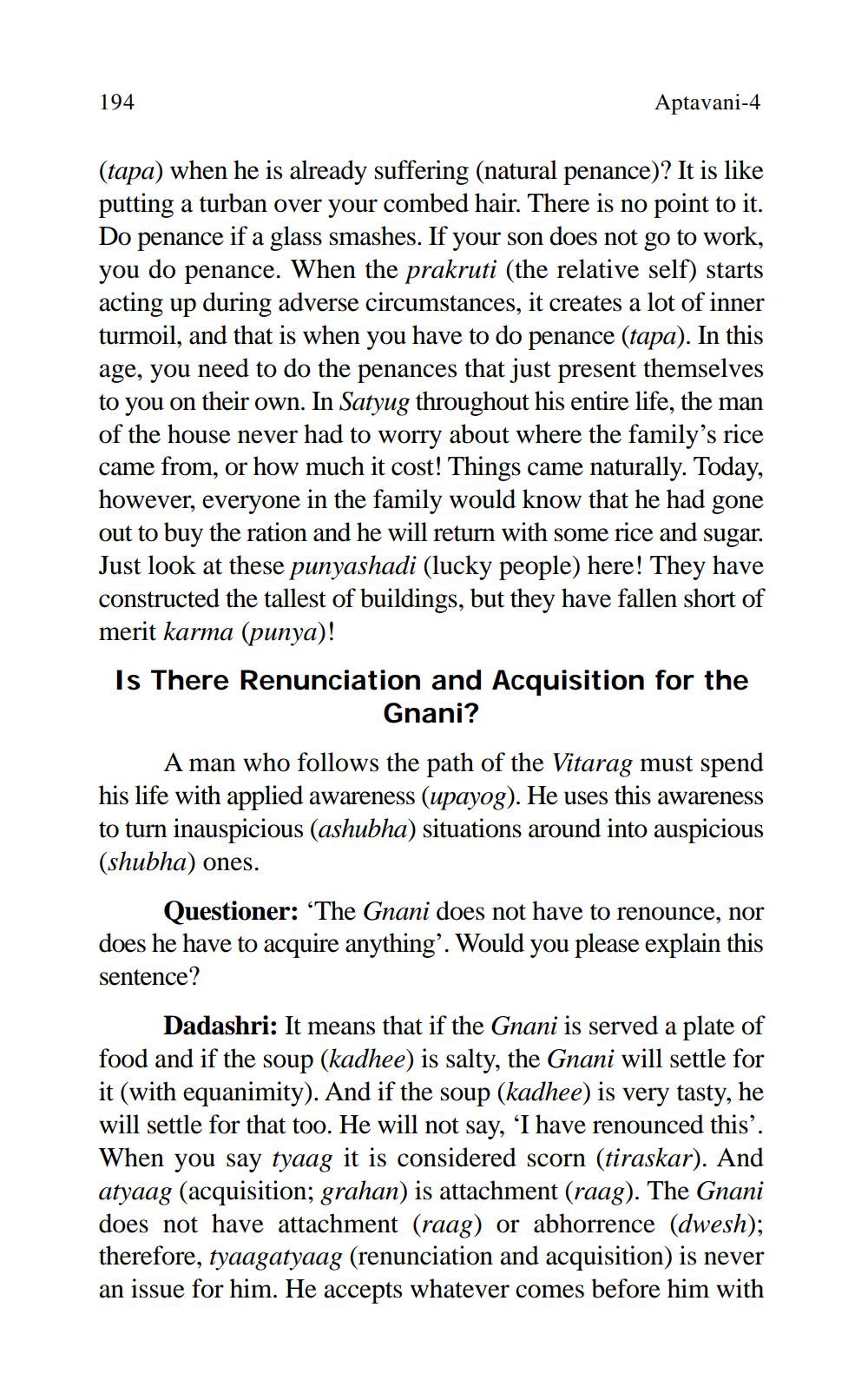________________
194
Aptavani-4
(tapa) when he is already suffering (natural penance)? It is like putting a turban over your combed hair. There is no point to it. Do penance if a glass smashes. If your son does not go to work, you do penance. When the prakruti (the relative self) starts acting up during adverse circumstances, it creates a lot of inner turmoil, and that is when you have to do penance (tapa). In this age, you need to do the penances that just present themselves to you on their own. In Satyug throughout his entire life, the man of the house never had to worry about where the family's rice came from, or how much it cost! Things came naturally. Today, however, everyone in the family would know that he had gone out to buy the ration and he will return with some rice and sugar. Just look at these punyashadi (lucky people) here! They have constructed the tallest of buildings, but they have fallen short of merit karma (punya)! Is There Renunciation and Acquisition for the
Gnani? A man who follows the path of the Vitarag must spend his life with applied awareness (upayog). He uses this awareness to turn inauspicious (ashubha) situations around into auspicious (shubha) ones.
Questioner: ‘The Gnani does not have to renounce, nor does he have to acquire anything'. Would you please explain this sentence?
Dadashri: It means that if the Gnani is served a plate of food and if the soup (kadhee) is salty, the Gnani will settle for it (with equanimity). And if the soup (kadhee) is very tasty, he will settle for that too. He will not say, 'I have renounced this'. When you say tyaag it is considered scorn (tiraskar). And atyaag (acquisition; grahan) is attachment (raag). The Gnani does not have attachment (raag) or abhorrence (dwesh); therefore, tyaagatyaag (renunciation and acquisition) is never an issue for him. He accepts whatever comes before him with




